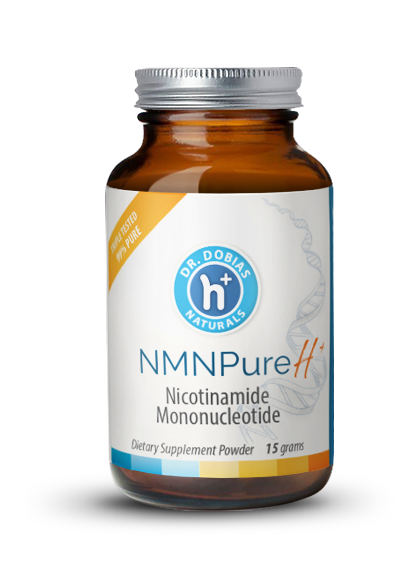

Results from a clinical study on the benefits of NMN for dogs
Contents
This week my team told me, “Peter, either you take some real time off, or you are fired!” Just kidding, but the truth is, I am off spending some time with my sister and her family in Greece. Paxi is having a fantastic time, and pictures will be coming soon — I promise!
However, being off doesn’t mean that I am willing to interrupt my weekly newsletter ritual and not publish the promising results of the NMN study my team and I conducted in 2021.
The primary objective of the study was to answer the following three questions:
- Is NMN (Nicotinamide mononucleotide) safe for dogs?
- Can it improve health and slow down aging?
- Does NMN cause any side effects?
I hope you will enjoy reading the results of this study and will be inspired to look for ways of improving the length and quality of your dog’s life.
Is NMN (nicotinamide mononucleotide) safe for dogs?
This article is an overview of a three-month clinical trial of NMN (nicotinamide mononucleotide), the precursor to Nicotinamide adenine dinucleotide (NAD), in 23 middle-aged, senior, and geriatric dogs with a variety of health problems.
Each dog was given a daily dose of NMN and none were taking NMN prior to starting the study.
Administration used in the study:
1 – 27 kg (1 – 60 lbs) Give 1/8 tsp daily (250 mg)
28 kg and up (60 lbs and up) Give 1/4 tsp daily (500 mg)
The guardians of dogs in the trial provided reports on their dog’s health status, behaviour, and symptoms over the course of 12 weeks and the data was collected in two-week intervals.
Study summary:
Despite the fact that all of the dogs that participated in the study were middle-aged and older, and each of them suffered from one or more medical conditions, overall, a number of dogs showed positive changes in mobility over the course of the trial, as well as improved mood — possibly due to less pain, increased mobility, and more energy.
Some dogs slept deeper/better or had a more restful sleep, possibly due to decreased pain. No dogs experienced a noticeable decline in the primary health issues that were reported at the beginning of the trial.
A few advanced geriatric dogs showed signs of dementia during the trial, however, their advanced age and the fact that the trial was conducted during a summer heat wave, were possibly the cause. It is unlikely that these symptoms were related to the effects of NMN.
Several dogs experienced increased licking/scratching, a short bout of diarrhea, vomiting bile, ear wax build-up, and eye discharge. Generally speaking, these symptoms subsided and occurred only temporarily.
From an integrative medicine point of view, seeing these transient symptoms during the course of treatment may be seen as favourable, indicating the activation of the body’s defences and detoxing. It is a sign that the body’s vital force reached a greater ability to heal and recover.
Conclusion:
Nicotinamide mononucleotide appears to be safe and well-tolerated by dogs. The improvements in muscle mass, mobility, mood, and sleep, all suggest a greater quality of life which is even more significant in the case of senior dogs, who often have multiple health problems.
Some dogs who would not sleep throughout the night started doing so during the trial.
The main purpose of this study was to determine the safety of NMN and its potential to improve the quality of life of aging and senior dogs.
Considering that the first signs of cellular aging and decline of NAD in dogs appear at two years of age, and taking into account my personal two-year experience with NMN supplementation, I have made the decision to start my dog, Pax, on NMNPure H+ at three years of age. I give him a dose of NMN every third day and will gradually move to daily dosing when he reaches five years.
Because NMN improves NAD levels and increases sirtuin enzymes, as well as the rate of DNA repair and cardiac function and performance in humans, I suggest the use of NMN to slow down the rate of aging and increase the health and lifespan of dogs.
NMN appears to cause no clear side-effects other than temporary cleansing reactions such as diarrhea, vomiting, and itching which are considered to be signs of detoxification and overall defence and repair systems activating within the body (as long as the symptoms are transient).
If you decide to try NMN for yourself or your dog, the product’s purity should be carefully evaluated. I have solved this concern by triple-testing the product at three different sources.
It is very clear that there is more research to be done, and hopefully some double-blind studies, but I consider our clinical trial to be a great start in a new area of medicine.
Considering that NMN improves cellular metabolism, it appears to be very promising in the prevention and treatment of common diseases in dogs such as heart disease, kidney disease, liver disease, pancreatitis, diabetes, and digestive disorders.
Instead of waiting for deterioration in health and quality of life, NMN is a promising substance to delay aging and increase health and lifespan.
For more information on NMNPure H+ click here.
For a more detailed article on NMN click here.